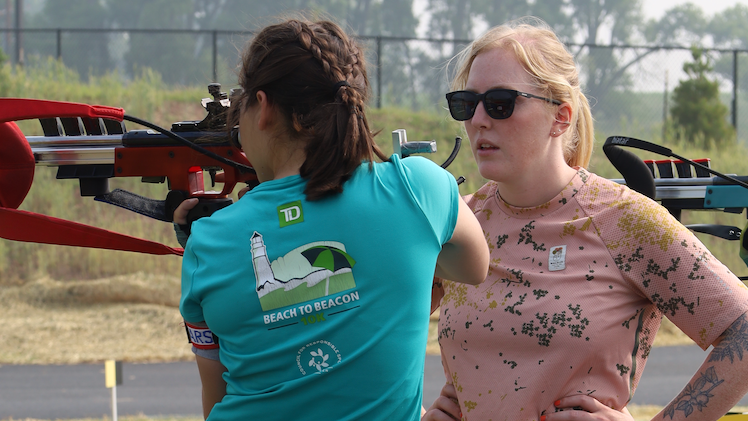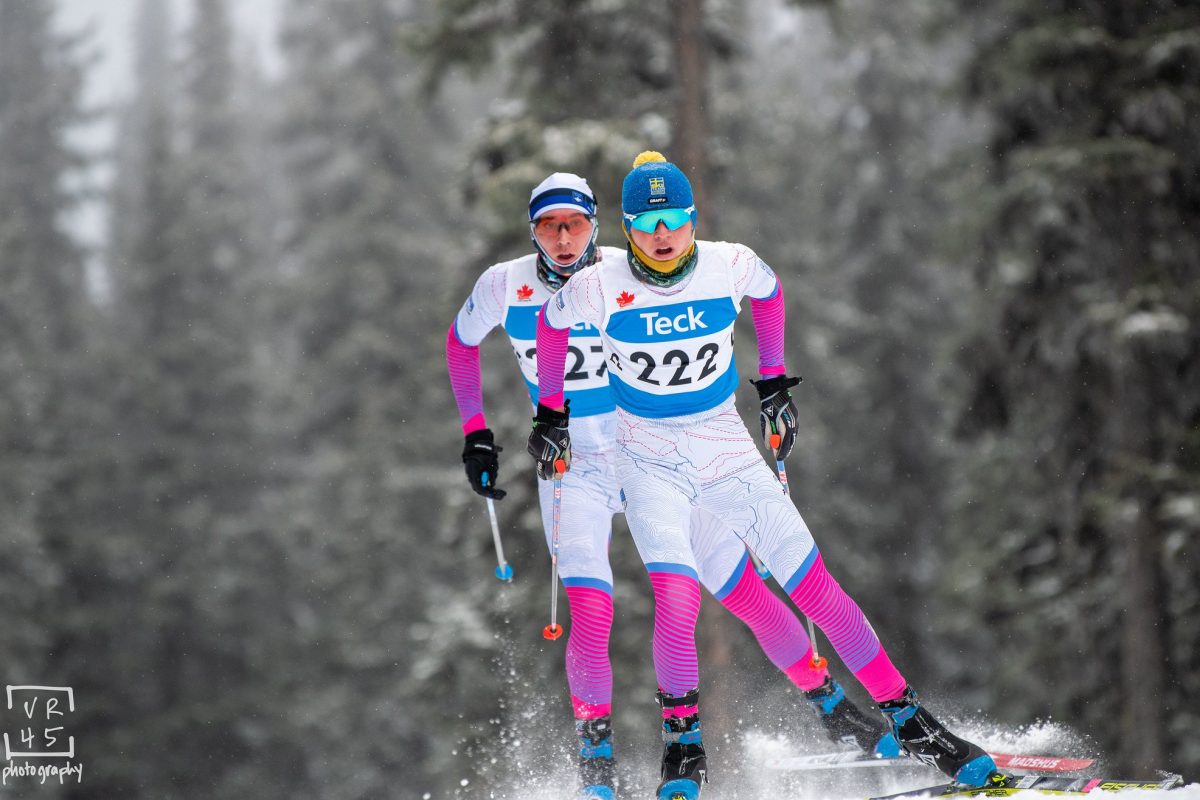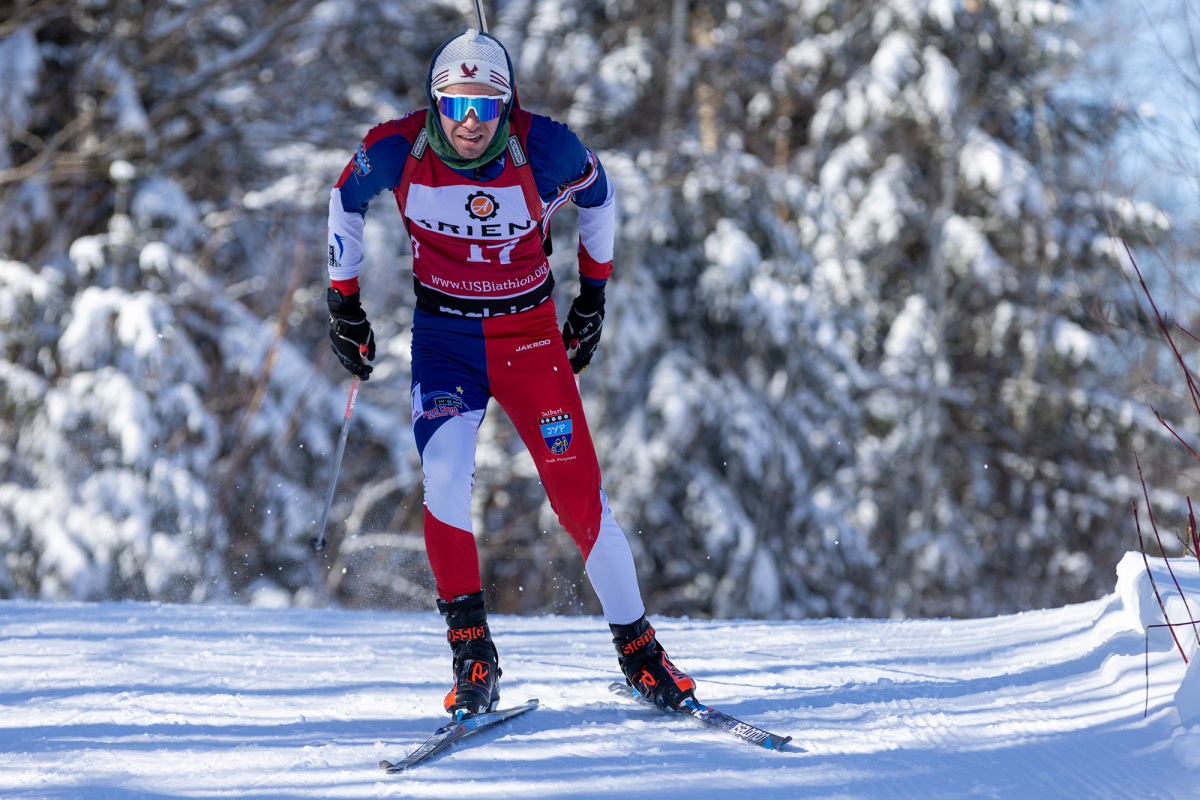
RUHPOLDING, Germany – After calling biathlon on Eurosport for 15 years, Sigi Heinrich has seen a lot of races, but the veteran commentator says he never gets bored watching the sport. FasterSkier caught him in the media center to talk about the World Championships so far, why biathlon is Europe’s most popular winter sport, and what the U.S. chances might be in the men’s relay.
FS: You were never a biathlete – so how did you end up doing commentary for biathlon?
SH: I started with sports. I was a sports editor in Munich, and then Eurosport opened [in 1989] and I did alpine skiing when I started TV. After several years, one commentator couldn’t do it, and they asked me – they always asked me, Sigi, we have some problems with our commentaries, would you like to do biathlon? I said why not, it seems to be interesting. It was 1997, and now I’m the biathlon commentator.
FS: So you were doing all sports.
SH: I do biathlon, alpine skiing, and figure skating, which I really like, in the winter; and in the summer track and field, volleyball, gymnastics, diving, soccer. All stuff like this.
FS: So of all those sports, why is biathlon so popular to watch in the winter?
SH: It’s the combination. It’s just the combination between cross country and shooting, and the idea that you never know who the winner will be. In cross country, you know ‘this will be the winner’ or ‘these will be the first five people.’ And in biathlon, until the last shoot – we saw this at World Championships already – you have no idea who the winner is. The surprise is greater, and the entertainment for the spectators in the arena is great. You don’t have this kind of entertainment in other sports. It just makes biathlon really great.
FS: In America, people don’t really care…
SH: I know! Sometimes when I’m in America, I have to explain it. People ask me, ‘what kind of sports do you [commentate on]?’ And when I say biathlon, ‘what is biathlon, what is biathlon?’ I don’t understand because we had Salt Lake City, we had Soldier Hollow, and Lake Placid, but they don’t invest anything in biathlon.
FS: So, then, do you think with more money, people in other countries would pay more attention? That it would be more global?
SH: It’s not a question of money, it’s a question of the culture, I think. The Americans don’t have a culture for biathlon. Or the Americans didn’t have a culture, for example, for soccer, but it’s growing and it’s getting better and better. But Europe, in all of Europe, winter sport is a culture.
There’s a wonderful sentence – in Norway for example, if the Norwegian family is saying, ‘on Sunday we’ll go skiing,’ they don’t mean alpine skiing. They mean cross country. Norway!
FS: That’s just what they do.
SH: Yes, this is what I mean. Culture.
FS: After doing biathlon for 15 years, do you ever get bored?
SH: No, never. Never. Never! Because every race has it’s own style, it’s own fascination. So you never know what is going to happen. Even for me, it is wonderful. You start always completely anew.
FS: What have you thought of the races here so far?
SH: Great. The atmosphere here is unbeatable, definitely. You have 28,000 spectators every day. You have difficulties with the preparation of the course because it’s too warm. It’s the middle of March at the moment so it’s not so easy. But the atmosphere is absolutely fantastic. And outsiders can win – you see Jakov Fak from Slovenia, the Czechs got a medal, it’s great.
FS: Who do you think will have good relay teams? Do you have any picks?
SH: I am following always the Americans. Because Armin Auchentaller from south Tirol is in the team, and Bernd Eisenbichler the team chief is from Germany, [Per] Nilsson is a nice guy too, Tim Burke is with Andrea Henkel, so I am following the American team. And the last results were absolutely great. And I hope, really – its true, I’m not fishing for compliments – but I really hope that the American team can get the bronze medal in the relay. They are able to do it, they are strong enough, they are in good shape at the moment. It could be possible.
But there are the Norwegians for example, the Germans, France, Russia, Czech Republic…
FS: What about Sweden?
SH: It depends on whether Carl Johan Bergman is coming back. Maybe Slovenia. So it’s absolutely open. And it’s possible for the U.S. team. It is, definitely.
FS: Do you find yourself rooting for the underdog sometimes?
SH: A little bit. It’s more fun. That brings the color into this competition.
FS: It seems like it’s been a tough World Championships for Norway and Germany and some of the big teams.
SH: Yes, because biathlon is in these countries very important. Even for Russia, it’s very important especially because in two years we have Sochi. So there is much more attention from the media, more dates and appointments with the media. Like for the Americans – you are it for the Americans! So if you want an interview that’s easy because you’re coming. But if the Germans do an interview, 200 [reporters] are waiting and listening to each sentence: what are you doing, and what is your plan. It’s not easy. And for the Germans all the spectators expect gold medals and gold medals and gold medals.
FS: Do you think that is part of the reason that they’ve been having trouble?
SH: No, not trouble. I mean, 0.8 seconds for Andi Birnbacher behind Soukup of the Czech Republic [for bronze in the individual], it’s not having trouble. It’s sport. It’s just sport, it’s not a huge difference. One step here, or there, you cannot say where he lost 0.8 seconds. Where? It’s nothing. He could be third too, he could be second. It’s biathlon.
FS: Last year Makarainen and Bø were winning the overall all season. Why do you think it’s more back and forth this year, both the men and the women?
SH: The competition for the men is much stronger and more together. You have more men who are able to win. For the women you really only have five or six women who are able to win – Domracheva, Makarainen, Neuner, sometimes Henkel, Tora Berger, Helena Ekholm, Zaitseva. So say maybe eight, but then it’s over. Over. But the men you have 25 who can win.
FS: Over the last fifteen years have there been a lot of changes like that, where the whole field will be strong, and then someone will dominate?
SH: It’s crazy, sometimes it changes from week to week. You think, ‘oh, now we have a new champion for the next weeks,’ and then a week later he misses some shots and instead of in the third position he’s in the 30th position. So it’s up and down. And this is one of the reasons why biathlon is so amazing.
FS: How has the sport changed since you started commentating?
SH: We are the Formula One of the winter season. Go out and look at the VIP tent. It’s two stories, for I don’t know how many hundred people, the food is outstanding, a lot of sponsors, shuttle service with the best BMW’s. All of these things – the biggest changes are around the sport. The sport is still the same.
FS: Do you think it will continue to get bigger and get more money?
SH: No.
FS: It’s at it’s capacity.
SH: I think we are on top now and we should try to keep this level, if it’s possible. It will be hard to. But more is not possible.
FS: What do you think could cut into biathlon’s popularity?
SH: Alpine skiing, for sure. Kitzbuhel, Wengen, all these traditional alpine races. Cross country is nothing. Nordic combined is the loser of winter sports. Ski jumping is still great and fascinating. But biathlon – biathlon has the best position.




3 comments
OEB2ODB
March 8, 2012 at 2:09 pm
“So say maybe eight, but then it’s over” *
* SuDunk is now #9.
Best of luck to all the US women’s team! Rock that relay.
davord
March 9, 2012 at 9:11 pm
It’s interesting to see what Heinrich had to say about popularity. I agree with him, especially in regards to xc. It’s still popular in Scandinavia and perhaps pockets of Russia and Central Europe, but even then, it’s quite down on the list of popular sports for TV. It’s a shame, but it’s true. In Germany, more than in any other country it seems, the popularity of a sport fluctuates with the performances of German athletes. I wonder what Heinrich would have to say about that. I am sure he knows about it and would definitely agree. Since Jan Ullrich’s retirement a few years ago, coupled with every other pro cyclist being caught for doping, cycling has really dropped off in Germany. I think when skiers like Angerer, Teichmann, Filbrich and Sachenbacher call it a day and the youngsters don’t fill that void, you will see a similar situation, if it isn’t there already. Great interview and very intriguing perspective from one of the best commentators!!
monica
March 11, 2012 at 8:36 am
As for Sachenbacher calling it a day–I find this very hard to believe, but British Eurosport announcers have said that she’s being groomed for biathlon & will join the team next year . . .